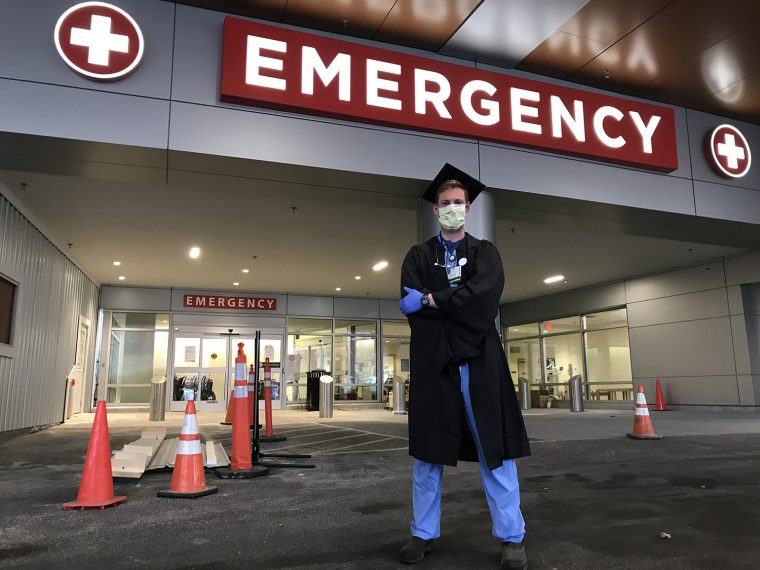Gowns4Good, Co-Founded by Catania ’13, Connects Health Care Workers with Alternative PPE


Scores of commencement ceremonies around the United States have been canceled or postponed this spring due to the COVID-19 pandemic. That means scores of graduation gowns could sit unused in closets.
Instead, Taran Catania ’13, an MBA student at the University of Vermont, wants students past and present to put those gowns to a different use. Together with her classmate Nathaniel “Than” Moore, who works as an emergency medicine physician assistant in the UVM Medical Center, Catania earlier this month launched Gowns4Good, which coordinates the donation of gowns to health care providers on the front lines of the pandemic. The gowns will function as alternative personal protective equipment (PPE), to add an extra barrier of protection between medical staff and patients.

“Medical facilities worldwide are lacking personal protective equipment and are using anything they can to protect themselves,” Catania said, noting that even makeshift gowns made from trash bags are reportedly being used as doctors, nurses, and others care for people with COVID-19. “Instead of . . . [other] alternative forms of PPE, graduation gowns are more effective, given their length, sleeves, and easy donning with zippered access. If worn backwards, they have a high neckline to further decrease exposure.”
Gowns4Good is asking students from any institution or level (high school or beyond), as well as schools and manufacturers, to donate clean graduation gowns—new or used—that are unable to be worn this year. After gowns are donated and shipped (following instructions on the Gowns4Good site), the group packages and sends them in batches to medical facilities, including hospitals, long-term care facilities, and COVID-19 testing sites.
So far, the group has already had commitments for more than 1,300 individual gown donations, with corporate partnership donations in the works for several thousand more, Catania said. More than 50 medical facilities have requested over 10,000 gowns and counting, and the group is currently working to send significant shipments to sites in New York, New Hampshire, Ohio, Connecticut, and New Jersey.

“We have had such an incredibly warm reception—everything from donations pouring into our GoFundMe to help with shipping costs to medical facilities, to schools (including one in northeast Connnecticut) organizing and hosting their own community socially-distanced ‘drive through’ collection sites,” said Catania. (She noted that she has been “using everything I can muster out of my Wesleyan tool kit [to run Gowns4Good], from my systems-thinking mindset learned through my government/College of the Environment double major, down to the use of statistics software from Professor Erika Franklin Fowler’s Empirical Methods for Political Science class.”)
“As someone who is not a health care provider myself, this is a tangible way I can help the people who are taking care of us,” Catania said. “On a personal level, every day my friend Than walks into the ER as a health care provider, I’m so thankful he has PPE. When I think about other people who are having to worry about their friends and loved ones walking into emergency rooms without proper PPE, my heart breaks. Gowns4Good is my way of helping to protect other people’s ‘Thans’—and give back in whatever way I can.”

